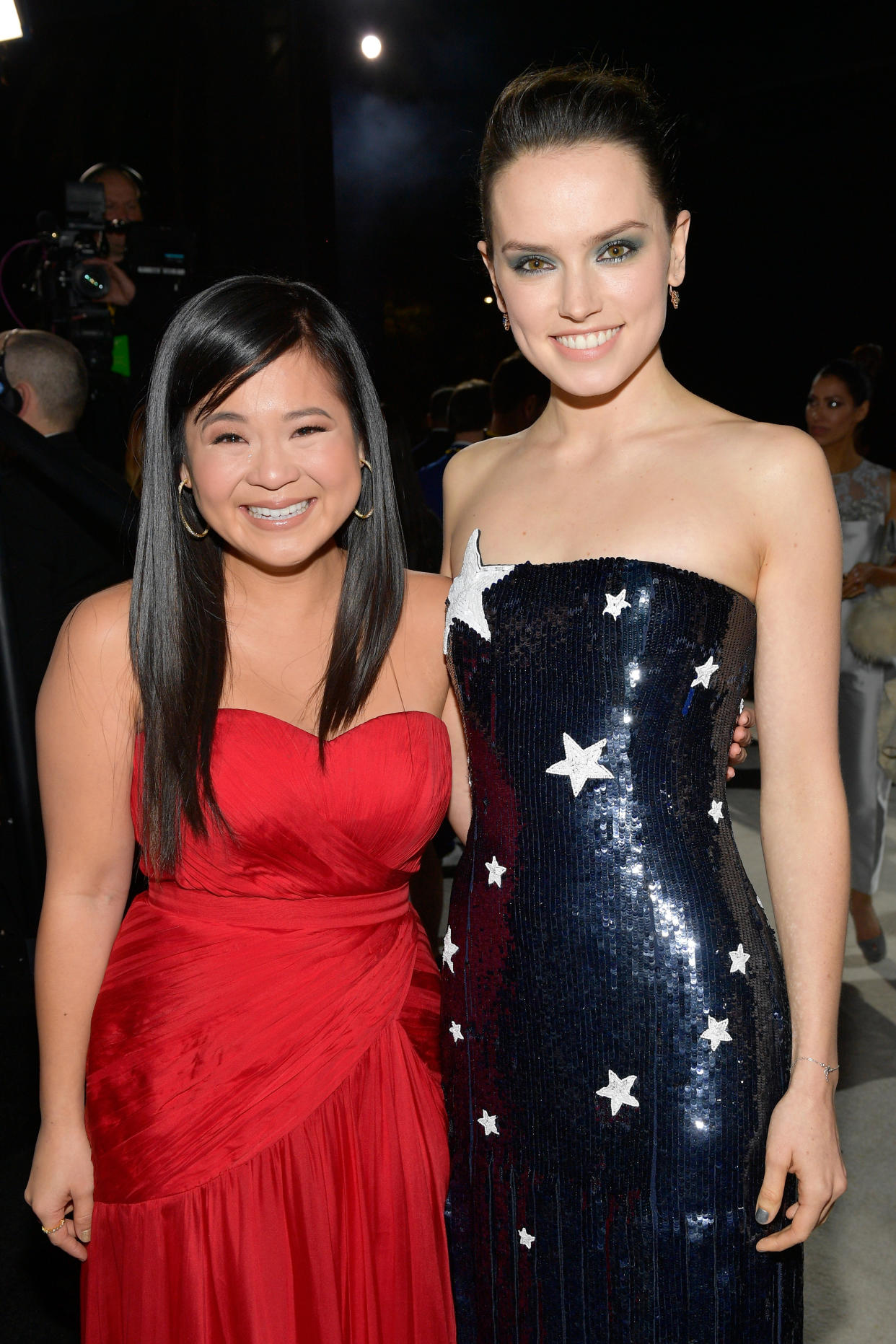Kelly Marie Tran and Daisy Ridley highlight social media's dangers — and they're not wrong

When Star Wars actress Kelly Marie Tran wiped her Instagram on Tuesday, many speculated that her choice to do so was inspired by months of social media harassment she’s endured. Trolls reportedly attacked the Vietnamese-American star for her race (for example, using slurs on her Wookieepedia page) and for her character Rose’s actions in Star Wars: The Last Jedi.
Before deleting her account, Tran was vocal about the dangers of social media. “I avoided public social media for a long time purely because I was afraid. I was terrified of being picked apart, of being scrutinized, of being seen. …We live in a world that profits off our insecurities,” she wrote in a caption of a since-deleted post.
The 29-year-old Tran isn’t the first Star Wars player to disengage with social media following personal attacks. Fellow actress Daisy Ridley stepped away from the online world after she faced backlash for sharing a post commemorating victims of gun violence. After deactivating her accounts, the 25-year-old told the Radio Times that social media is “highly unhealthy for people’s mental health.”
The actresses have a point. Dr. Pamela Rutledge, director of the Media Psychology Research Center, tells Yahoo Lifestyle that the toll social media can take on an individual is partially due to the lack of online boundaries we grant ourselves, compared to the ones we do offline.
“The human brain is highly sensitive to criticism — even verbal attacks trigger the fight or flight syndrome that is at the root of our survival instinct,” she says. “From an evolutionary perspective, it is much more important that we pay attention to criticism than praise, as acceptance into the tribe is fundamental to our mental and physical survival.”
Celebrities, because of their public persona and elevated status, are subjected to even more online harassment, which can lead to further negative psychological effects.
“You have a choice — you can have someone curate your content for you, you can choose to not read the comments, or you can withdraw, and I applaud anyone who takes steps to protect their physical and mental health,” Rutledge says of how these figures can handle the pressures of being in the spotlight.
Because of the complex relationship between celebrities and their fans, online interaction has almost become an integral part of being a member of the entertainment industry. Movie studios are even reportedly hiring stars based on their social media followings and baking promotion of work into contracts.
However, a majority of celebrities derive their fanbase from alternate sources, making their social media presence less necessary. In Ridley and Tran’s cases, their absence from social media isn’t detrimental to their careers.
“There are lots of ways to reach out to their fans,” said Rutledge. “It doesn’t mean [Tran] loves her fans less, she just has to protect herself.”
Read more from Yahoo Lifestyle:
Why are people more likely to kill themselves in the spring and summer?
President Trump slams facelift, breakup rumors inspired by Melania’s absence
Follow us on Instagram, Facebook, and Twitter for nonstop inspiration delivered fresh to your feed, every day.

